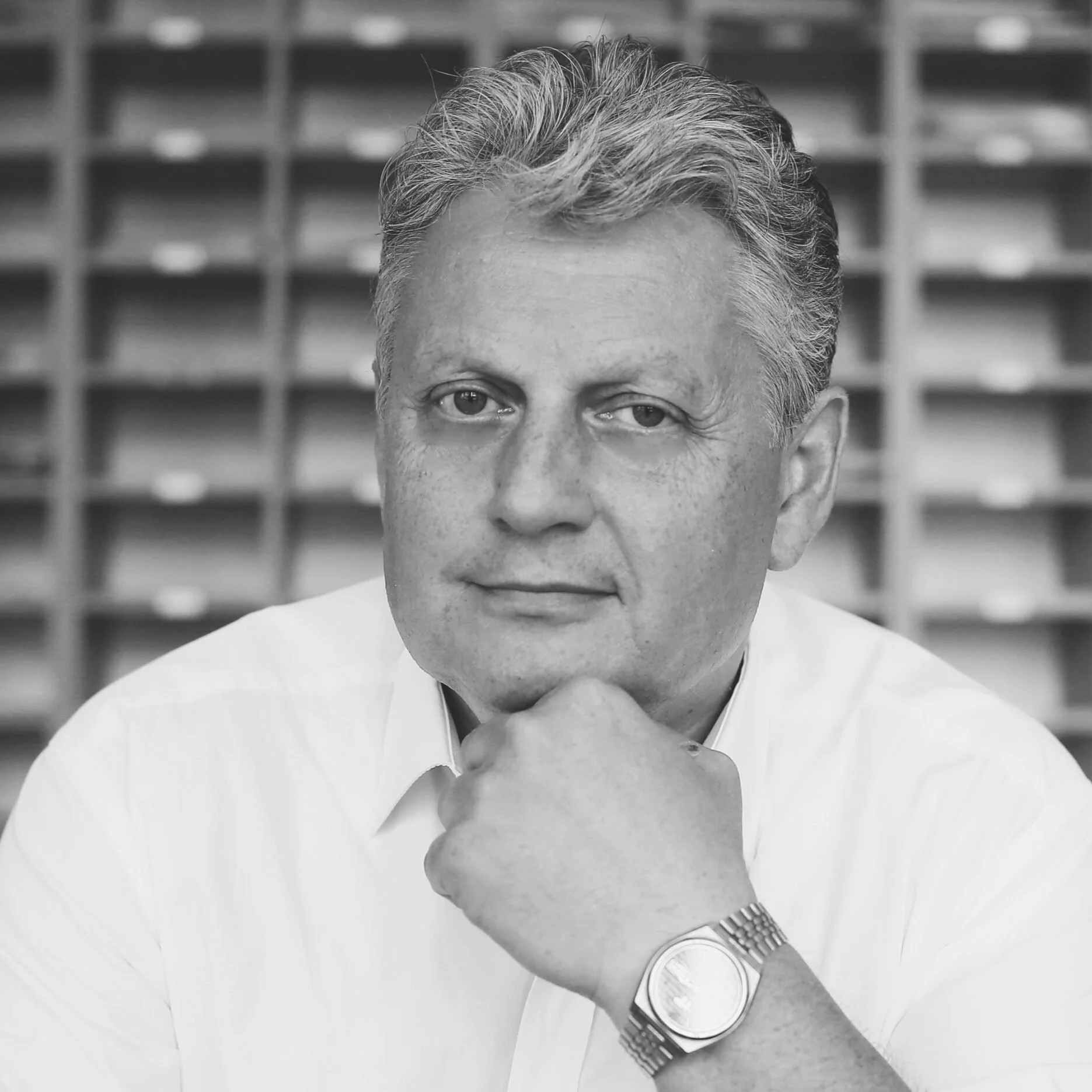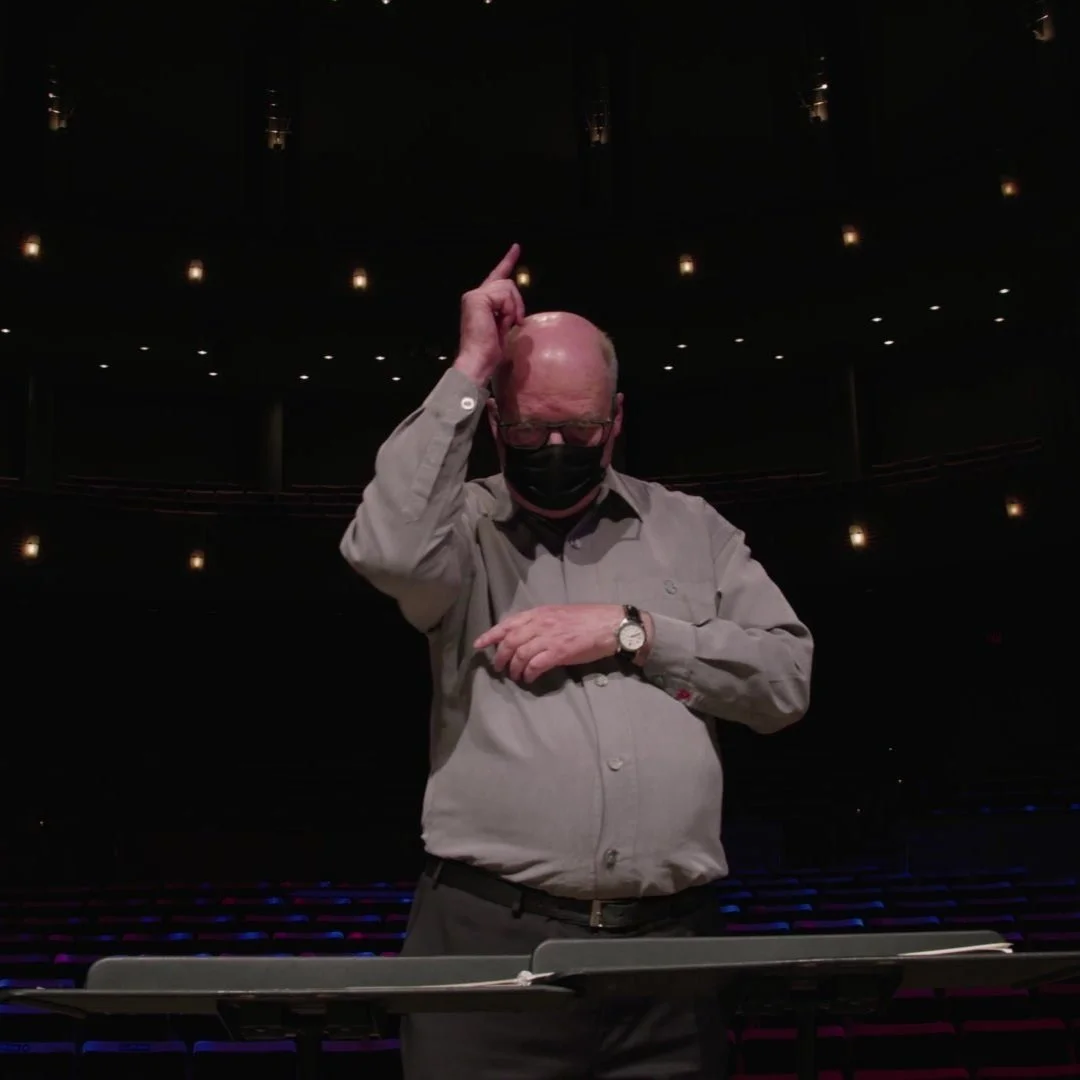Turning Point Ensemble forges a rich Canada-Croatia connection
Musical exchange that started with Owen Underhill leading the Cantus Ensemble in Canadian new music now brings composer-conductor Berislav Šipuš here
Berislav Šipuš
Owen Underhill
Turning Point Ensemble and SFU Woodward’s Cultural Programs present In the Distance at SFU Woodward’s Fei and Milton Wong Experimental Theatre on April 29
SOMETIMES IT REALLY is who you know, not what you know, that makes the difference.
There’s an outside chance that Vancouver’s own Turning Point Ensemble could have struck up a friendly relationship with Zagreb’s Cantus Ensemble all on its own; after all, both chamber-music groups were featured performers at the 2017 edition of World New Music Days, an annual conference of new-music composers, presenters, and performers. But having a Croatian as president of its board of directors didn’t hurt.
Dubravko Pajalic is the European in question, and apparently he played a key role in setting up an ongoing cultural exchange that, so far, has seen TPE artistic director and conductor Owen Underhill take a sheaf of Canadian scores to Zagreb, where he performed them with Cantus, and that will soon lead to his opposite number, Berislav Šipuš, returning the favour.
Like his colleagues Underhill and Šipuš, Pajalic is a composer and music educator as well as an administrator, and his contacts proved invaluable once discussions began. But so, too, did a sense of shared purpose, not only between the two ensembles, but between their respective countries.
“I feel that Canada and Croatia are, artistically and culturally, in some similar place,” explains Underhill, in a Zoom interview from his East Vancouver home. “There’s a very lively and, I would say, internationally underrated amount of music going on in Canada, and similarly in Croatia. So probably here in Canada we are a little bit dominated in therms of international exposure by American composers; they’re probably more well-known in Europe, let’s say, than Canadian composers. But what is interesting is that Canada has started to develop, particularly in Vancouver, a lot more Asian connections. We’ve maybe taken a different approach than other western cities. And with Croatia, a lot of their composers—including ones on this program—may have been trained in France or Germany, but they have quite a distinctive culture, just like Canada does.”
For the first part of the exchange, Underhill led the Cantus Ensemble through an all-Canadian program.
“In fact, it was all music associated with Turning Point Ensemble,” he says. “There was my cello concerto, and also pieces by Dorothy Chang and John Oliver, and we commissioned a new piece by Edward Top. So there were four Vancouver composers represented there with large-scale works that had been written for Turning Point, but played—and played very well, by the way—by the ensemble there.”
In programming his Vancouver response, which Turning Point will perform at SFU Woodward’s Fei and Milton Wong Experimental Theatre this Friday, Šipuš has taken a similar tack. He’s including a work of his own, In Der Ferne, but has also assembled a survey of compositions that span three generations and a diversity of styles, from purely instrumental chamber music to scores that incorporate soprano and electronics.
“Eclecticism,” says Underhill, is the program’s hallmark. “There’s not one single approach,” he explains. “There’s not an attempt to try and write ‘European avant-garde music’, even if there may be influences there. There’s quite an exotic mixture of sounds that seem to be preferred in these pieces, although there aren’t, as far as I can tell, any clear examples of folk music.But that doesn’t mean that there isn’t influence of that.”
What links Srdan Dedič, Marko Ruždjak, Krešimir Seletkovič, Stanko Horvat, and Šipuš, he continues, is their pedagogical relationship—basically, the older composers taught their younger colleagues.
“For example, Berislav’s teacher was Stanko Horvat, who died in 2006, so there’s a connection there,” Underhill notes. “And there’s also one other composer, Marko Ruždjak, who was born in 1946 and died in 2012. So they seem to have put together two composers representing the post-war period in Croatia, and then two composers of Berislav’s generation, and one younger composer, Krešimir Seletkovič, who was born in the 1970s. And it’s going to be a big program of very energetic and ambitious music. Each piece looks fairly different, so I think that as a snapshot of what’s going on in Croatia, it’s going to be a fascinating one.”
Next up for this Canada/Croatia cultural exchange is for the two ensembles to meet and go on tour together—playing separate programs but also joining forces for one or more larger pieces. It’s an ambitious plan, and the details are still taking shape—but with the musicians having already developed a basic body of work and with an in-house translator on hand, it might prove a bold advance in cultural diplomacy at a time when that’s exactly the world could use.















